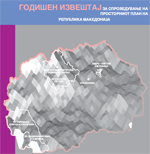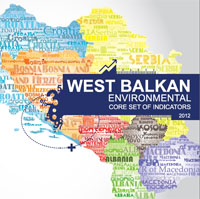The Ministry of Environment and Physical Planning, in cooperation with the Macedonian Ecological Society, organized a workshop to present the working version of the Proposal-Law on Spatial Planning of the Republic of North Macedonia, as part of the project “Improving connectivity in the Balkan Green Belt”.
The purpose of the workshop was to present the working version of the Proposal-Law to the relevant experts in the field of spatial planning and to discuss the content of the proposal, in order to hear the opinions, suggestions and remarks in order to draft a good and solid draft-Law on Spatial Planning.
“This represents a decisive step in making significant positive changes in the field of spatial planning in our country and in our approach to sustainable development. The purpose of drafting the new Law on Spatial Planning was not only to fill the vacuum in the legislation, i.e. is to separate urban planning from spatial planning, but also to introduce new concepts and standards as part of our existing regulation”, Minister Shukova emphasized in her opening address, emphasizing that it includes more new and current concepts in spatial planning in North Macedonia, such as the concept of Green Infrastructure, the non-occupation of new (especially agricultural) areas with urbanization (No-net-land-take), recycling of land, the integration of climate changes in spatial planning, etc.
The State Secretary of the Ministry of Environment and Physical Planning and head of the Spatial Planning Department, Nebi Redzepi, presenting the goals, content and structure of the workshop, emphasized “Our goal today as the Ministry of the Environment is to discuss the proposed working text of the draft Law on Spatial Planning”. We expect that this law will become the first special Law on Spatial Planning in our country, and that is why we are here, to contribute to its improvement, for the common and general good. At this workshop for dialogue and exchange of opinions, every comment or proposal will be significant for the development of the final version of the Law. With the active participation of everyone, we are sure that we will be able to create a Law that will be appropriate to our modern conditions and needs and that will ensure a decent future for future generations”.
The spatial plan is a multidisciplinary document whose task is to integrate and harmonize the various sectoral policies and to provide appropriate guidelines for comprehensive, cohesive, acceptable development, taking into account sustainability, with a special emphasis on the protection of the environment, nature, human health, and the increasingly topical aspect of the impact of climate change and its mitigation.
It is a long-term planning document that is adopted with a validity of at least 15 years, and therefore it is of particular importance that the process of preparation and adoption be as transparent and inclusive as possible.





































































